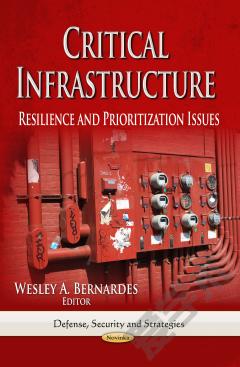Critical Infrastructure: Resilience and Prioritization Issues
Critical infrastructure are those assets, the loss of which would result in great harm to the nation's security, economy, health and safety, and morale. They include assets necessary to generate and distribute such basic goods and services as electricity, drinking water, telecommunications, banking and finance, etc. Resilience refers to the ability of a system to resist, absorb, recover from, or successfully adapt to a change in environment or conditions. The Critical Infrastructure Task Force has argued that government policies encouraged employing greater defenses such as surveillance equipment, guards, etc., around these assets but did less to encourage efforts that would allow assets to continue operating at some level, or quickly return to full operation, if attacked. Such efforts might include increasing redundancies (such as having multiple backup power generation capability) or designing more robust systems for the future (such as using more hardened concrete for stronger fixed facilities). This book discusses the concept of resilience in the context of critical infrastructure and homeland security. It also identifies and discusses issues related to the evolution of policy and programs at the Department of Homeland Security (DHS) that are meant to, or could, promote the resiliency of the nation's critical infrastructure.
{{comment.content}}








 京公网安备 11010802027623号
京公网安备 11010802027623号